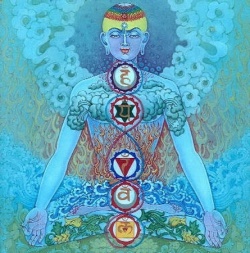The Origins of Buddhism
Buddhism is one of the world's oldest religions, which originally had its roots within the Hindu culture in India. According to tradition, Buddha was born at Lumbini , near the present day border of India and Nepal in 563BC. He was born Prince Siddhartha Gautama. At the age of twenty-nine Siddhartha left his royal family in search of spiritual truth and the cause of human suffering.
After six years of searching he resolved to sit in silent meditation under a Pippala tree (usually refered to as a Bodhi tree) until he achieved enlightenment. This took place at Bodh Gaya south east of the ancient Indian city of Varanasi (Benaras). After forty-nine days of meditation he attained enlightenment, after which he travelled to Sarnarth, a short distance north of Varanasi, to preach his first sermon.
The name Buddha means awakened or enlightened one. When the Buddha died he attained nirvana or a final release from human suffering.
Although Buddha did not write down his dharma or teachings, later followers who lived around the modern day Indian state of Bihar transcribed his teachings and spread them through Northern India. Buddhism developed rapidly, especially when it was embraced by the powerful emperor Ashoka in 262BC. Eventually it spread to other Asian countries and, in more modern times, to many parts of the western world. Buddhist Teaching
The Buddha taught that life involves suffering but that suffering comes from our sensual desires and the illusion that they are important. By following the middle way - moderation in everything - and what became known as the noble eightfold path these desires can be extinguished and a state of nirvana eventually reached. In most cases this process involves going through a series of rebirths or reincarnations until the ultimate goal is reached. The path that leads through this cycle is determined by karma - a law of cause and effect. Good and bad actions in one life determine roles to be played in the next life and so on. A similar belief in karma and reincarnation is common to Hinduism. The later teachings of Zen proposed that it was possible to attain nirvana, like the Buddha himself, in a single lifetime.
